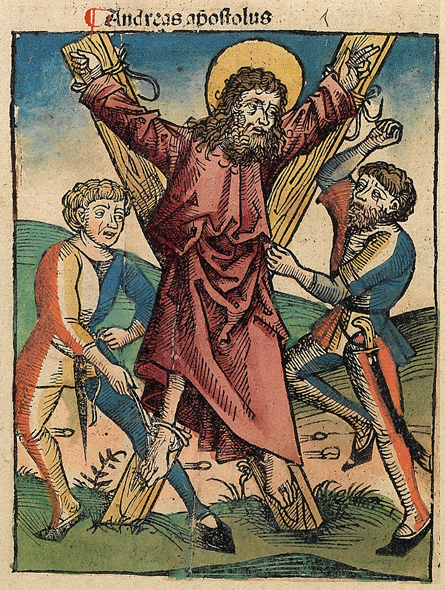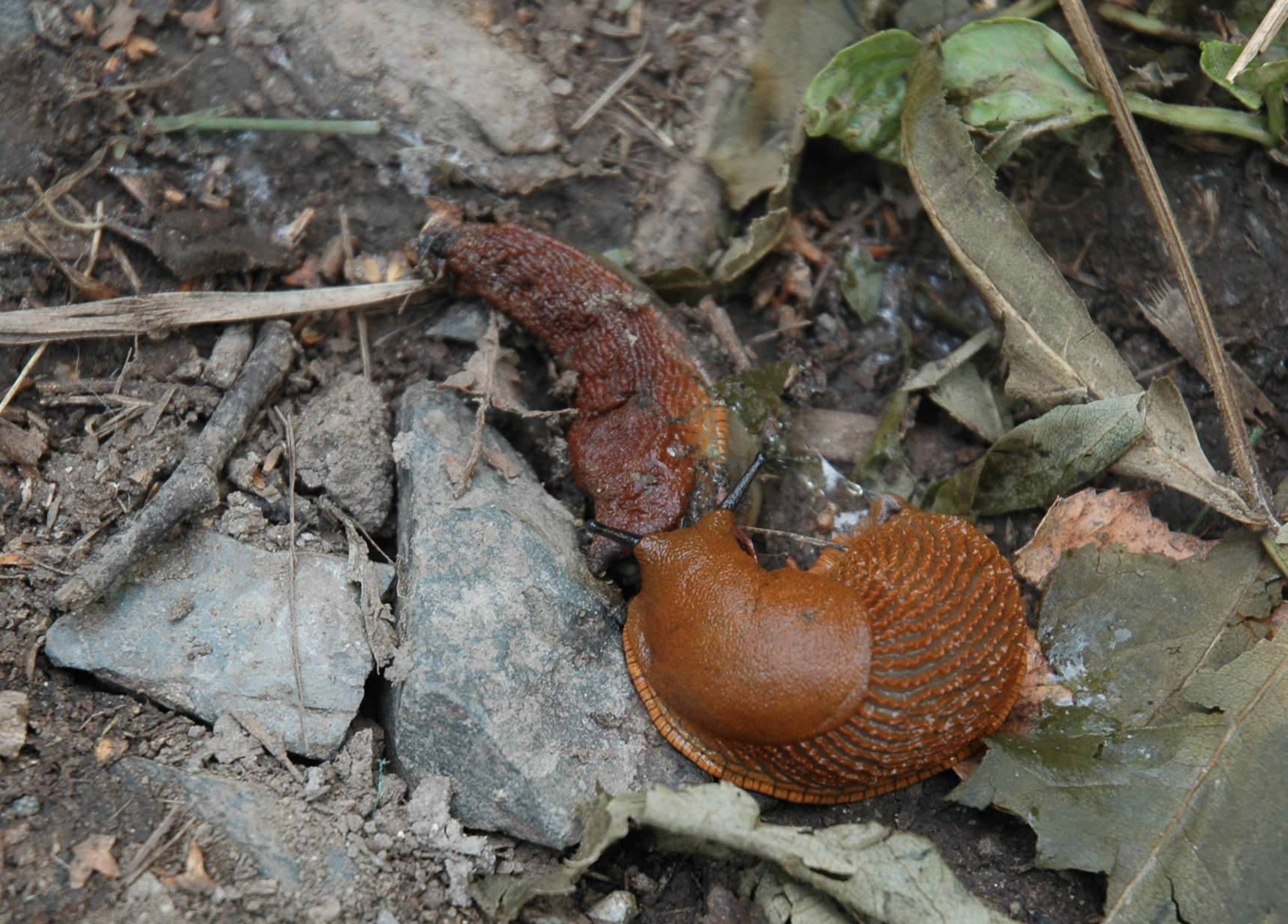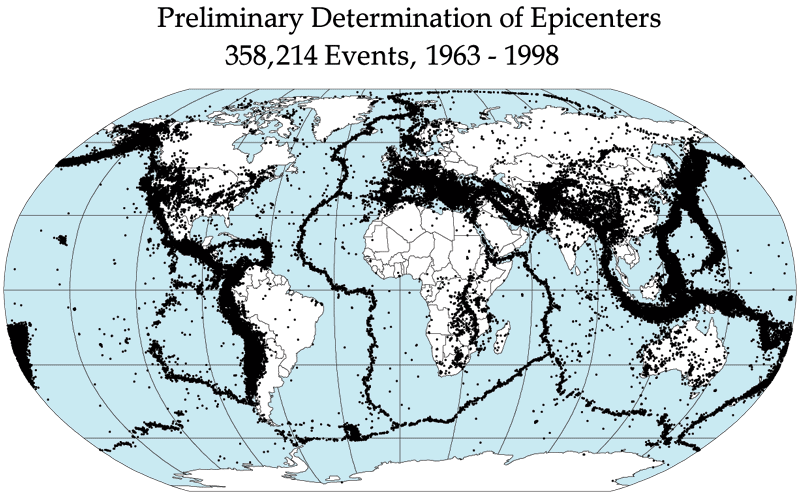|
Acts Of Andrew
The Acts of Andrew (), is the earliest testimony of the acts and miracles of the Apostle Andrew. The surviving version is alluded to in a 3rd-century work, the Coptic ''Manichaean Psalter'', providing a , according to its editors, M. R. James (1924) and Jean-Marc Prieur in ''The Anchor Bible Dictionary'' (vol. 1, p. 246), but it shows several signs of a mid-2nd-century origin. Prieur stated that "The distinctive christology of the text" and its lack of mention of church organisation, liturgy, and ecclesiastical rites, lead one to "militate for an early dating". By the 4th century, the were relegated to the New Testament apocrypha. Prieur also stated that its "serene tone" and innocence of any polemic or disputes concerning its ideas or awareness of heterodoxy, particularly in the area of christology, show that "it derived from a period when the christology of the Great Church had not yet taken firm shape". The episodic narratives in which Andrew figures survive incomplete ... [...More Info...] [...Related Items...] OR: [Wikipedia] [Google] [Baidu] |
Apostle Andrew
Andrew the Apostle ( grc-koi, Ἀνδρέᾱς, Andréās ; la, Andrēās ; , syc, ܐܰܢܕ݁ܪܶܐܘܳܣ, ʾAnd’reʾwās), also called Saint Andrew, was an apostle of Jesus according to the New Testament. He is the brother of Simon Peter and is a son of Jonah. He is referred to in the Orthodox tradition as the First-Called ( grc-koi, Πρωτόκλητος, Prōtoklētos, label=none). According to Orthodox tradition, the apostolic successor to Andrew is the Patriarch of Constantinople. Life The name "Andrew" (meaning ''manly, brave'', from grc-gre, ἀνδρεία, andreía, manhood, valour), like other Greek names, appears to have been common among the Jews and other Hellenized people since the second or third century B.C. MacRory, Joseph. "St. Andrew." The Catholic Encyclopedia Vol. 1. New ... [...More Info...] [...Related Items...] OR: [Wikipedia] [Google] [Baidu] |
Cannibalism
Cannibalism is the act of consuming another individual of the same species as food. Cannibalism is a common ecological interaction in the animal kingdom and has been recorded in more than 1,500 species. Human cannibalism is well documented, both in ancient and in recent times. The rate of cannibalism increases in nutritionally poor environments as individuals turn to members of their own species as an additional food source.Elgar, M.A. & Crespi, B.J. (1992) ''Cannibalism: ecology and evolution among diverse taxa'', Oxford University Press, Oxford ngland New York. Cannibalism regulates population numbers, whereby resources such as food, shelter and territory become more readily available with the decrease of potential competition. Although it may benefit the individual, it has been shown that the presence of cannibalism decreases the expected survival rate of the whole population and increases the risk of consuming a relative. Other negative effects may include the increased r ... [...More Info...] [...Related Items...] OR: [Wikipedia] [Google] [Baidu] |
Apocryphal Acts
__NOTOC__ The Acts of the Apostles is a genre of Early Christian literature, recounting the lives and works of the apostles of Jesus. The ''Acts'' (Latin: ''Acta'', Greek: Πράξεις ''Práxeis'') are important for many reasons, one of them being the concept of apostolic succession. They also provide insight into the valuation of "missionary activities among the exotic races," since some of them feature missionary work done among, for instance, the Cynocephaly. Examples The canonical ''Acts of the Apostles'' Only one work in this genre is included in the New Testament canon, entitled the ''Acts of the Apostles'', sometimes called the ''Book of Acts'' or simply ''Acts'', and primarily concerns the activities of Saint Peter, John the Apostle, and Paul the Apostle, who converts to Christianity in chapter 9 and becomes the main character. It is presumably the second part of a two-part work, the Canonical Gospel of Luke being the first part, with both works being addressed to ... [...More Info...] [...Related Items...] OR: [Wikipedia] [Google] [Baidu] |
Dennis MacDonald
Dennis Ronald MacDonald (born 1946) is the John Wesley Professor of New Testament and Christian Origins at the Claremont School of Theology in California. MacDonald proposes a theory wherein the earliest books of the New Testament were responses to the Homeric Epics, including the Gospel of Mark and the Acts of the Apostles. The methodology he pioneered is called Mimesis Criticism. If his theories are correct then "nearly everything written on heearly Christian narrative is flawed."Interview with Dennis R MacDonald About Atheism. About.com. Retrieved January 13, 2009 According to him, modern biblical scholarship has failed to recognize the impact of Homeric Poetry. The other major branch of MacDonald's scholarly activity is his contribution to the |
Nag Hammadi Library
The Nag Hammadi library (also known as the " Chenoboskion Manuscripts" and the "Gnostic Gospels") is a collection of early Christian and Gnostic texts discovered near the Upper Egyptian town of Nag Hammadi in 1945. Thirteen leather-bound papyrus codices buried in a sealed jar were found by a local farmer named Muhammed al-Samman. The writings in these codices comprise 52 mostly Gnostic treatises, but they also include three works belonging to the ''Corpus Hermeticum'' and a partial translation/alteration of Plato's ''Republic''. In his introduction to ''The Nag Hammadi Library in English'', James Robinson suggests that these codices may have belonged to a nearby Pachomian monastery and were buried after Saint Athanasius condemned the use of non-canonical books in his Festal Letter of 367 A.D. The discovery of these texts significantly influenced modern scholarship's pursuit and knowledge of early Christianity and Gnosticism. The contents of the codices were written in the C ... [...More Info...] [...Related Items...] OR: [Wikipedia] [Google] [Baidu] |
Gnosticism
Gnosticism (from grc, γνωστικός, gnōstikós, , 'having knowledge') is a collection of religious ideas and systems which coalesced in the late 1st century AD among Jewish Jews ( he, יְהוּדִים, , ) or Jewish people are an ethnoreligious group and nation originating from the Israelites Israelite origins and kingdom: "The first act in the long drama of Jewish history is the age of the Israelites""The ... and early Christian sects. These various groups emphasized personal spiritual knowledge (''gnosis'') above the orthodox teachings, traditions, and authority of religious institutions. Gnostic cosmogony generally presents a distinction between a supreme, hidden God and a malevolent demiurge, lesser divinity (sometimes associated with the Yahweh of the Old Testament) who is responsible for creating the nature, material universe. Consequently, Gnostics considered material existence flawed or evil, and held the principal element of salvation to be direct ... [...More Info...] [...Related Items...] OR: [Wikipedia] [Google] [Baidu] |
Merovingian
The Merovingian dynasty () was the ruling family of the Franks from the middle of the 5th century until 751. They first appear as "Kings of the Franks" in the Roman army of northern Gaul. By 509 they had united all the Franks and northern Gaulish Romans under their rule. They conquered most of Gaul, defeating the Visigoths (507) and the Burgundians (534), and also extended their rule into Raetia (537). In Germania, the Alemanni, Bavarii and Saxons accepted their lordship. The Merovingian realm was the largest and most powerful of the states of western Europe following the breaking up of the empire of Theodoric the Great. The dynastic name, medieval Latin or ("sons of Merovech"), derives from an unattested Frankish form, akin to the attested Old English , with the final -''ing'' being a typical Germanic patronymic suffix. The name derives from King Merovech, whom many legends surround. Unlike the Anglo-Saxon royal genealogies, the Merovingians never claimed descent from a ... [...More Info...] [...Related Items...] OR: [Wikipedia] [Google] [Baidu] |
Gregory Of Tours
Gregory of Tours (30 November 538 – 17 November 594 AD) was a Gallo-Roman historian and Bishop of Tours, which made him a leading prelate of the area that had been previously referred to as Gaul by the Romans. He was born Georgius Florentius and later added the name Gregorius in honour of his maternal great-grandfather. He is the primary contemporary source for Merovingian history. His most notable work was his ''Decem Libri Historiarum'' (''Ten Books of Histories''), better known as the ''Historia Francorum'' (''History of the Franks''), a title that later chroniclers gave to it. He is also known for his accounts of the miracles of saints, especially four books of the miracles of Martin of Tours. St. Martin's tomb was a major pilgrimage destination in the 6th century, and St. Gregory's writings had the practical effect of promoting highly organized devotion. Biography Gregory was born in Clermont, in the Auvergne region of central Gaul. He was born into the upper stratum ... [...More Info...] [...Related Items...] OR: [Wikipedia] [Google] [Baidu] |
Heresy
Heresy is any belief or theory that is strongly at variance with established beliefs or customs, in particular the accepted beliefs of a church or religious organization. The term is usually used in reference to violations of important religious Religion is usually defined as a social- cultural system of designated behaviors and practices, morals, beliefs, worldviews, texts, sanctified places, prophecies, ethics, or organizations, that generally relates humanity to supernatur ... teachings, but is also used of views strongly opposed to any generally accepted ideas. A heretic is a proponent of heresy. The term is used particularly in reference to Heresy in Christianity, Christianity, Heresy in Judaism, Judaism, and Bid‘ah, Islam. In certain historical Christian, Muslim, and Jewish cultures, among others, espousing ideas deemed heretical has been (and in some cases still is) met with censure ranging from excommunication to the death penalty. Heresy is distinct ... [...More Info...] [...Related Items...] OR: [Wikipedia] [Google] [Baidu] |
Eusebius Of Caesarea
Eusebius of Caesarea (; grc-gre, Εὐσέβιος ; 260/265 – 30 May 339), also known as Eusebius Pamphilus (from the grc-gre, Εὐσέβιος τοῦ Παμφίλου), was a Greek historian of Christianity, exegete, and Christian polemicist. In about AD 314 he became the bishop of Caesarea Maritima in the Roman province of Syria Palaestina. Together with Pamphilus, he was a scholar of the biblical canon and is regarded as one of the most learned Christians during late antiquity. He wrote ''Demonstrations of the Gospel'', '' Preparations for the Gospel'' and ''On Discrepancies between the Gospels'', studies of the biblical text. As "Father of Church History" (not to be confused with the title of Church Father), he produced the ''Ecclesiastical History'', ''On the Life of Pamphilus'', the ''Chronicle'' and ''On the Martyrs''. He also produced a biographical work on Constantine the Great, the first Christian Roman emperor, who was ''augustus'' between AD 306 an ... [...More Info...] [...Related Items...] OR: [Wikipedia] [Google] [Baidu] |
Earthquake
An earthquake (also known as a quake, tremor or temblor) is the shaking of the surface of the Earth resulting from a sudden release of energy in the Earth's lithosphere that creates seismic waves. Earthquakes can range in intensity, from those that are so weak that they cannot be felt, to those violent enough to propel objects and people into the air, damage critical infrastructure, and wreak destruction across entire cities. The seismic activity of an area is the frequency, type, and size of earthquakes experienced over a particular time period. The seismicity at a particular location in the Earth is the average rate of seismic energy release per unit volume. The word ''tremor'' is also used for Episodic tremor and slip, non-earthquake seismic rumbling. At the Earth's surface, earthquakes manifest themselves by shaking and displacing or disrupting the ground. When the epicenter of a large earthquake is located offshore, the seabed may be displaced sufficiently to cause ... [...More Info...] [...Related Items...] OR: [Wikipedia] [Google] [Baidu] |
Incest
Incest ( ) is human sexual activity between family members or close relatives. This typically includes sexual activity between people in consanguinity (blood relations), and sometimes those related by affinity (marriage or stepfamily), adoption, or lineage. It is strictly forbidden and considered immoral in most societies, and can lead to an increased risk of genetic disorders in children. The incest taboo is one of the most widespread of all cultural taboos, both in present and in past societies. Most modern societies have laws regarding incest or social restrictions on closely consanguineous marriages. In societies where it is illegal, consensual adult incest is seen by some as a victimless crime. Some cultures extend the incest taboo to relatives with no consanguinity such as milk-siblings, step-siblings, and adoptive siblings, albeit sometimes with less intensity. Third-degree relatives (such as half-aunt, half-nephew, first cousin) on average have 12.5% common genetic heri ... [...More Info...] [...Related Items...] OR: [Wikipedia] [Google] [Baidu] |








